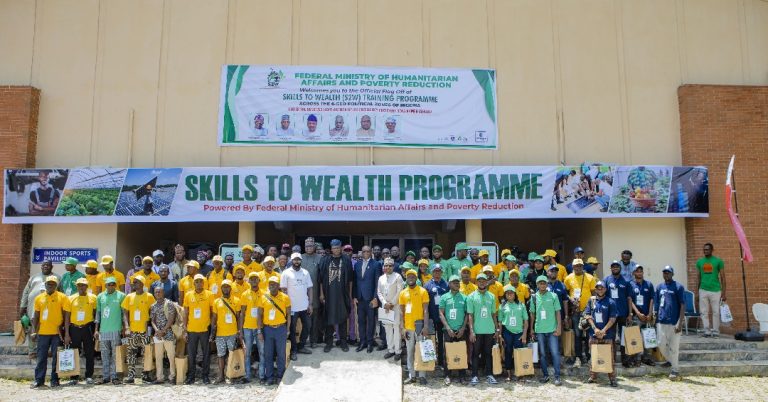CIG Motors, one of the leading automobile companies in Nigeria, has partnered the Federal Government to train Nigerian youths composed of males and females in modern automotive skills acquisition-A Nation on the Move
In a decisive step toward economic transformation, CIG Motors, one of Nigeria’s leading automobile companies, has forged a strategic partnership with the Federal Government. The mission? Empowering Nigerian youth through cutting-edge automotive skills acquisition—a move that aims not just to train but to redefine Nigeria’s role in global vehicle manufacturing and technology.
At the heart of this initiative is Chief Diana Chen, the formidable Chairman of CIG Motors Group. Speaking at the official launch of the Skills to Wealth (S2W) training program—an ambitious endeavor under President Bola Tinubu’s Renewed Hope Agenda, Chen laid out a vision that is as practical as it is inspiring.
“The future of Nigeria is in the hands of its youth,” she declared, her words resonating through the room. “This partnership is not just about skills—it is about creating prosperity, driving innovation, and positioning Nigeria as an automotive powerhouse on the African continent.”

A Bold Investment in People
Under the stewardship of the Federal Ministry of Humanitarian Affairs and Poverty Reduction, the S2W program is set to equip 10,000 Nigerian youths with expertise in auto mechanics, renewable energy, and agriculture—skills that could revolutionize local industry and bridge the technical knowledge gap that has long hindered progress.
Training has already begun, with CIG Motors leading the charge in modernizing Nigeria’s automotive workforce. This is not merely instruction—it is transformation.
Chen, represented at the event by Brigadier General Chukwuemeka Udaya (retd.), reiterated her company’s commitment. “Our partnership with the government ensures that Nigerian youth are not left behind in an era of rapid technological advancement. We must be bold. We must lead.”
The training, held across Nigeria’s six geopolitical zones, will immerse participants in intensive, hands-on workshops designed to prepare them for an increasingly automated world. It is an urgent necessity.
The Global Challenge
Nigeria—like much of Africa—stands at a crossroads. With 70% of its population under the age of 30, the nation faces an economic paradox: **immense potential, yet widespread poverty. Chen did not shy away from hard truths.
“About 50% of Nigerian children live in multidimensional poverty. What does that mean? It means we cannot wait. Economic prosperity must be built—and it must be inclusive,” she stated.
For this reason, CIG Motors has taken a bold step, partnering with the government in an unprecedented public-private collaboration.
“This program is not just about training—it is a direct investment in the future of Nigeria,” she emphasized. “We are providing not just education but career pathways, mentorship, and dignified employment. This is action, not words.”
A Nation Poised for Leadership
Beyond skills acquisition, Chen unveiled CIG Motors’ ambitious plan to expand automotive manufacturing in Nigeria, positioning the country as Africa’s leading hub for vehicle innovation.
Her words were echoed by Professor Nentawe Yilwatda, Minister of Humanitarian Affairs and Poverty Reduction, who warned that traditional mechanics could soon become obsolete if Nigeria fails to modernize.
“The world is moving toward automation, and the mechanics we see today may struggle to adapt. But this program eliminates that fear. It gives our youth the tools to thrive in a changing world,” he said.
The private sector is stepping in where government alone cannot scale, and CIG Motors is leading the charge—a fact acknowledged by policymakers at the event.
With the era of technological transformation already upon us, Nigeria is making one thing clear: it will not be left behind.

